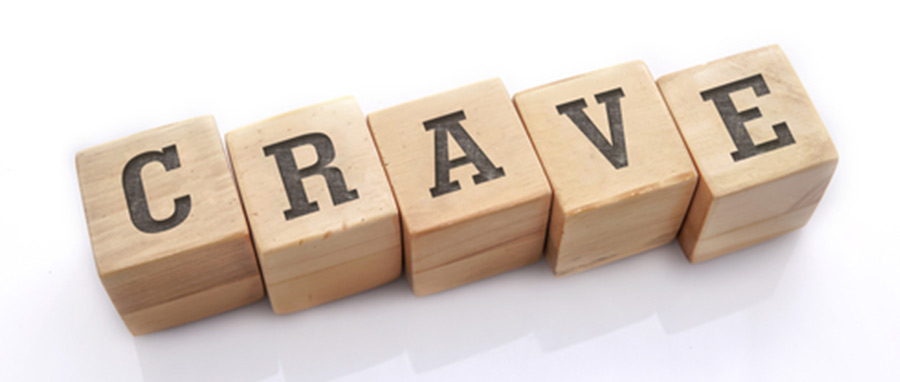Cravings are a chemical reaction in the brain operating in a malfunctioning program which was created by addiction. The brain records reward as an answer to stress. Things that feel good to the brain, feel good to the brain and the brain makes note of them. For example, when you turn on your favorite song and get a slight rush of excitement to hear it, that is your brain responding to pleasure. When you feel stressed and you get an urge to listen to your favorite song, that is your brain recalling its stored memory about that song. Your brain remembers that your song makes you feel good and happy. As a response to stress, your brain craves the song.
The same system is in place for addiction, but different due to the way that drugs and alcohol create the “feel good” sensation in the brain. Pleasure in the brain is stimulated by the production of a neurotransmitter called dopamine. Neurotransmitters are small messaging chemical systems in the brain. Dopamine sends messages of pleasure. Things like your favorite song produce a small amount of dopamine. Drugs and alcohol, especially when abused in large quantities, produce large amounts of dopamine. You don’t experience symptoms of withdrawal from your favorite song. You might think about it. You might even obsess about it. However, you won’t get physically sick without it or fail to be able to perform everyday functions without it. Not unless you have developed an addiction.
When drugs and alcohol are consumed in high quantities regularly the amount of dopamine produced is magnified, creating those addictive euphoric states. The brain not only becomes attracted to these euphoric states, but over time as addiction develops, the brain becomes dependent upon them. Through chronic reprogramming the brain becomes convinced that the euphoria created by drugs and alcohol is a vital necessity to existence. Such an intense memory association and neurological dependence is not easily forgotten. Cravings are simply a biochemical reminder of that dependence and a sign that the brain is still learning.
Cravings are not a sign that you are failing in your recovery. Experiencing cravings can result from acting in ways which are not conducive to your recovery, like participating in euphoric recall and keeping the “bad times” out of your mind. Skipping out on every day activities scientifically proven to help your brain heal and produce its own natural health pleasure can lead to cravings as well.
The number one thing to keep in mind about cravings is that they are not a sign that you are meant to relapse or have to relapse. Cravings and the many demands which come with them can be persuasive. They do, however, pass. Talk to your friends, therapist, and trusted recovery peers. Engage in your normal activities and find extra gratitude throughout the day. Cravings happen to you, but relapse is a choice. Choosing to stay sober is choosing freedom.
Our treatment programs at Tree House Recovery are showing men how to find freedom from addiction by creating sustainable changes for a sustainable recovery. Make the choice to go to treatment today by giving us a call: (855) 202-2138






